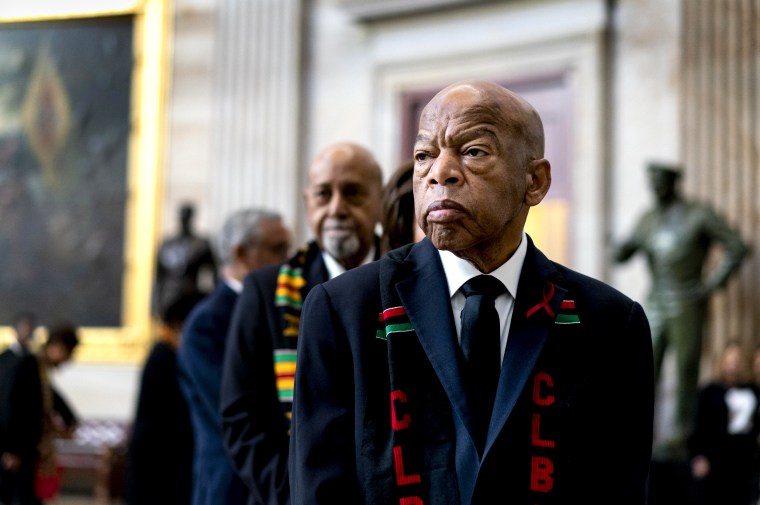A celebration of the life of Rep. John Lewis, a hero of the civil rights movement and longtime Georgia congressman, began Saturday in Troy, Alabama. The memorials will continue over six days in five cities.
Lewis has "come home," Troy Mayor Jason Reeves said at the start of the service Saturday morning in the city where Lewis, a son of sharecroppers, was born in 1940.
The mayor went on to recall the man who rose to become the "conscience of Congress" as having "otherworldly courage."
Lewis, who represented Atlanta in the House of Representatives, died July 17 after a monthslong battle with cancer. He was 80.
His body was brought Saturday morning from an Atlanta funeral home to his hometown for the service at Troy University that four of his sibling were to attend and where gospel singer Dottie Peoples performed.
"His faith in God made him extraordinary," Rosa Tyner, Lewis' sister, said. "He lived with a never-ending desire to help others. He often told us, ‘If you see something wrong, do something.’ His actions showed us just that. In a time when going to jail was perceived as trouble, he reminded us that it was good trouble. Necessary trouble.”
Jackson Lewis, Lewis' young great-nephew, remembered him as a "hero."
"It’s up to us to keep his legacy alive," the boy said.

Another sister, Ethel Tyner, recalled how she and her family were all farmers and that Lewis — whom the family called Robert — began preaching at a young age.
“When the clouds would come over the sun, he would start singing and preaching," she said. "And there’s a song he would always start with: ‘There’s a dark cloud arising, let’s go home. Let’s go home.'"
“To my brother, Robert, this is not a goodbye, just a different kind of hello," Tyner ended her speech. "Rest well, Robert. Rest well.”
One of Lewis' brothers said: "He was a congressman to most, John to others, Robert and Uncle Robert to family, but the most important role he played for me was being my older brother."
The man who famously urged activists to get into "good trouble" will lie in repose at the university until a service Saturday night at the Brown Chapel African Methodist Episcopal Church in Selma, Alabama. The church served as the starting point for the voting rights march to Montgomery on March 7, 1965.
Lewis was beaten bloody and suffered a skull fracture when the marchers crossed the Edmund Pettus Bridge and were met "by some 150 Alabama state troopers, sheriff’s deputies, and possemen, who ordered the demonstrators to disperse," the National Archives says. That day earned the moniker "Bloody Sunday," and images of Lewis being beaten by police in riot gear helped push congressional passage of the Voting Rights Act later that year.
On Sunday morning, Lewis will cross the bridge a final time.
The tribute to his life and accomplishments will continue over the next several days in Montgomery, Alabama, and Washington, D.C., before returning to Atlanta, where Lewis will be interred Thursday.
